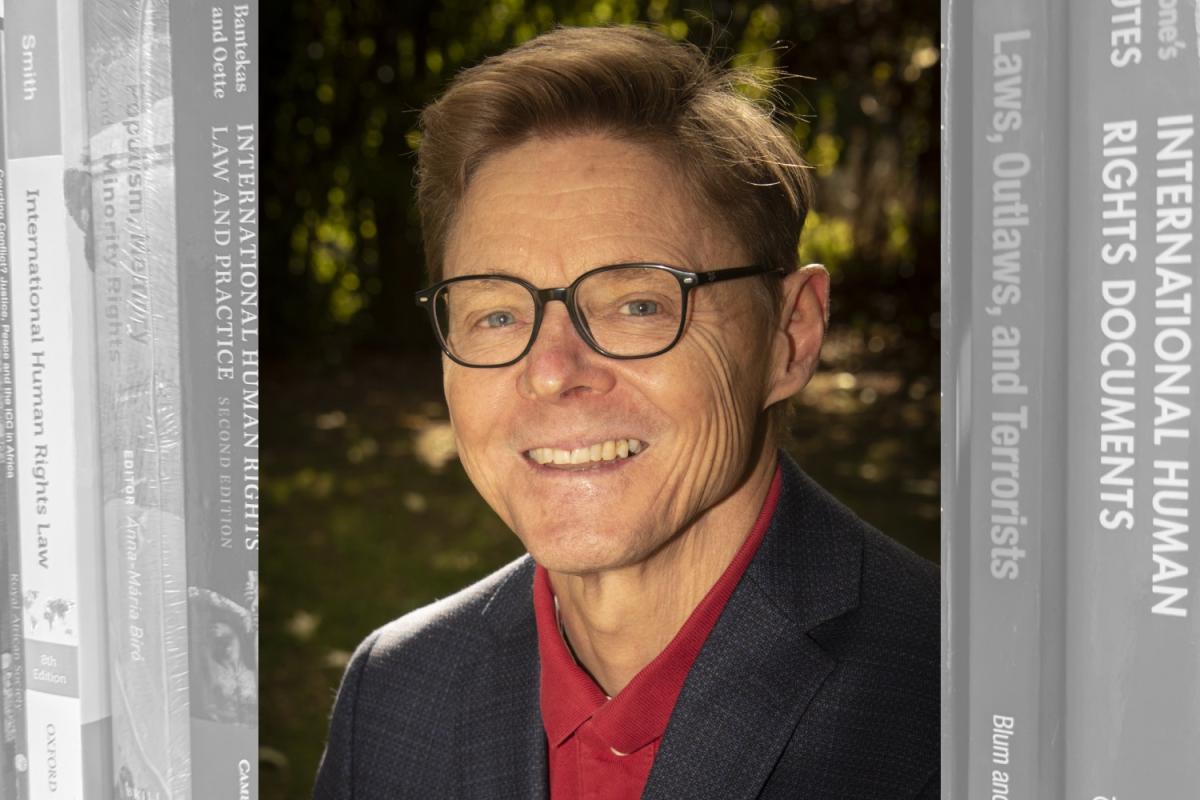
In Brief
- Tidball-Binz will involve third- and fourth-year undergraduates in his UN research via the Pozen Center's Global Human Rights Lab.
- He is currently the United Nations Special Rapporteur on extrajudicial, summary, or arbitrary executions.
- His career in human rights began in Argentina, where he developed pioneering applications of forensic science to human rights investigations.
- Later this year he will host members of the Grandmothers of Plaza De Mayo, the activists who first envisioned these investigative techniques.
- Third- and fourth-years interested in working with Tidball-Binz should attend an October 4th info session, and apply by October 13th.
Morris Tidball-Binz, a pioneer in the application of medical and forensic science to human rights investigations, will be based at UChicago this academic year thanks to a new collaboration between the Pozen Center Human Rights Lab and the Law School’s Global Human Rights Clinic.
Tidball-Binz, the current United Nations Special Rapporteur on extrajudicial, summary, or arbitrary executions, will supervise students interested in contributing to his ongoing research. This will include both law students and qualified undergraduates.
Tidball-Binz will also host a visit to UChicago from some of the first human rights activists he worked alongside: the famous Argentinian “Grandmothers of Plaza Del Mayo,” who successfully pushed for the creation of the first-ever genetic database used for locating victims of political disappearance and their relatives.
Involving Students In research
Tidball-Binz was named a UN Special Rapporteur in 2021. Special Rapporteurs are experts appointed to monitor, document, and offer advice on globe-spanning human rights issues. So far, Tidball-Binz has issued reports on the state of medico-legal death investigations, his position’s 40-year history, deaths in prisons, the investigation and prevention of femicide, and the human rights dimensions of protecting and respecting the remains of the victims of unlawful killings.
Special Rapporteurs are fully independent – they choose what to research, and reach their own conclusions – but they are also unpaid. For this reason, they often work with partner organizations to maximize their investigative reach and impact.
In preparing his report on the remains of the dead, Tidball-Binz received extensive support from Anjli Parrin, an experienced human rights investigator, advocate, and litigator. When Parrin joined UChicago in 2022 as the head of the Law School’s Global Human Rights Clinic, she and Tidball-Binz started brainstorming about how UChicago and its students could support his work and, by doing so, gain experience engaging with international human rights monitoring and enforcement mechanisms.
Naturally, the Pozen Center – a hub for undergraduates on campus with an interest in human rights practice – quickly became part of the conversation.
This year, the conversation becomes reality as Tidball-Binz begins a term as Visiting Senior Research Associate at the Pozen Center, an appointment co-funded by the Pozen Center and the Law School.
Law students under Parrin’s supervision at the Global Human Rights Clinic will conduct research in the service of Tidball-Binz’s upcoming reports. Through the Pozen Center’s Global Human Rights Lab, qualified third- and fourth-year undergraduates will also be able to join these efforts, contributing research that will be used in reports submitted to the United Nations.
AN ILLUSTRIOUS CAREER IN HUMAN RIGHTS
Over the course of his career, Tidball-Binz has contributed to forensic human rights investigations in every region of the world, often working through major human rights and humanitarian organizations like Amnesty International, the Inter-American Institute of Human Rights, and the International Committee of the Red Cross. He has also made significant contributions to the establishment of international standards for such investigations, including the Istanbul Protocol and the Minnesota Protocol.
Tidball-Binz, who was born in Chile, traces the beginning of his engagement with human rights to the late 1970s and early 1980s. This was when, as a medical school student in Argentina, he began working with the Grandmothers of Plaza de Mayo, a grassroots human rights organization formed with the purpose of locating Argentinian children who had been stolen away from their families and adopted by families allied with the country’s military dictatorship.
Early on, the Grandmothers envisioned the value of forensic science to their quest. Thanks to their vision, Tidball-Binz and a small group of his fellow students founded the Argentine Forensic Anthropology Team, the group that developed a genetic database to help locate these children and reconnect them to their families. As a result of this effort, more than 100 individuals have been reunited with their families.
While the Grandmothers’ success story has become internationally renowned, Tidball-Binz feels they have not received adequate recognition for their pioneering vision and its ongoing impact on human rights investigations and humanitarian action worldwide.
“Today this feels obvious,” he says. “We’ve all seen TV shows where people are gathering genetic samples from crime scenes, stuff like that. But in the early 1980s no one thought like that. It was these women who had the vision, and who pushed to make it actually happen. And this is still not fully recognized, even in the human rights world. This year’s 40th anniversary of the Argentine Forensic Anthropology Team is a wonderful occasion to honor the Grandmother’s contribution to forensic science and human rights. An event at UChicago will be a wonderful chance to give them their due.”
Tidball-Binz looks forward to sharing the Grandmother’s story with an audience from across UChicago. “We all work in niches,” he says. “And I’m a firm believer that it’s important to get outside of those niches and talk and encounter ideas we wouldn’t encounter otherwise, such as the synergy between forensic science and law that the Grandmothers recognized 40 years ago. This is why I’m happy to be working with the Pozen Center, because this is very much how they approach human rights.”
